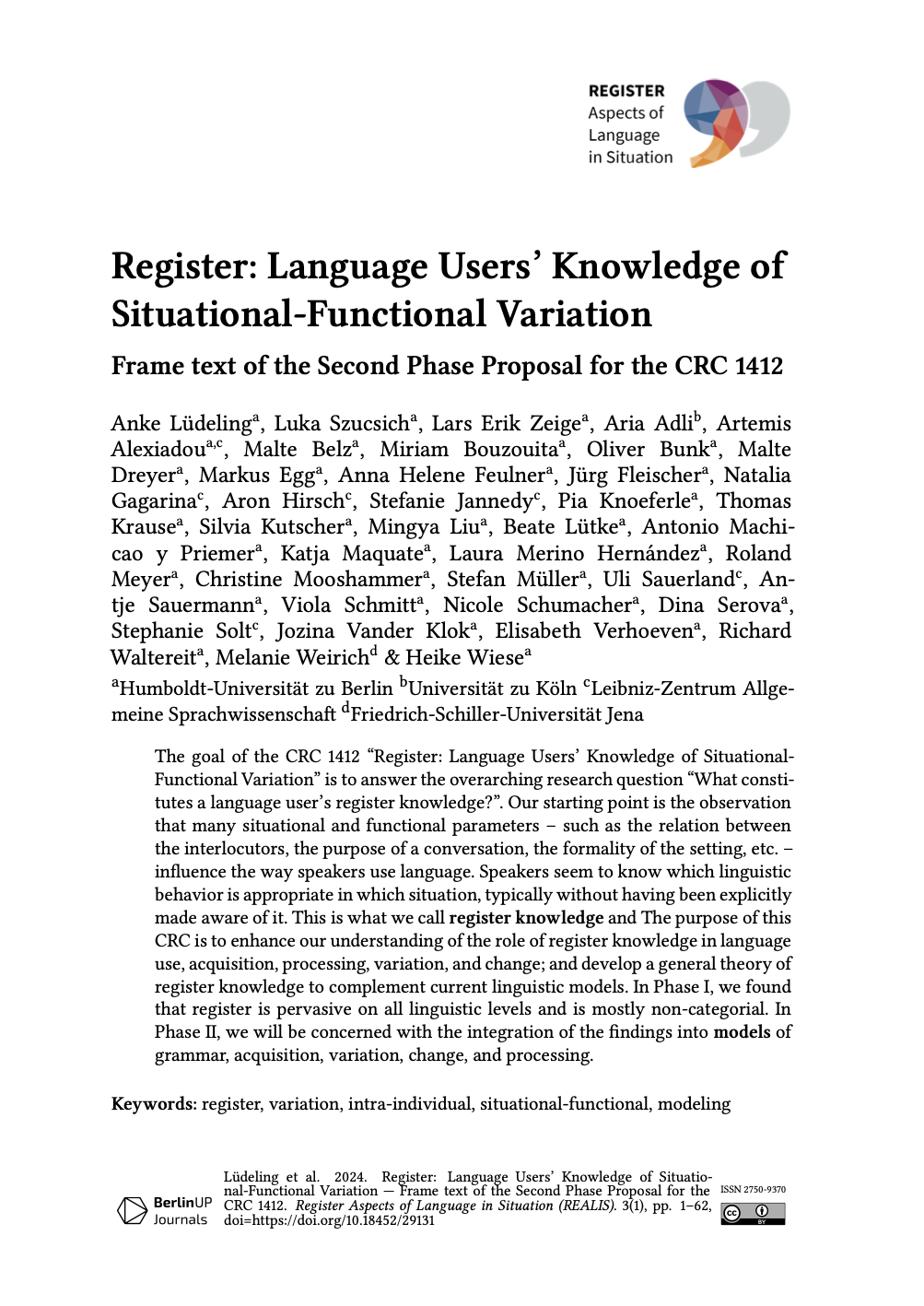Register: Language Users’ Knowledge of Situational-Functional Variation
Frame text of the Second Phase Proposal for the CRC 1412
DOI:
https://doi.org/10.18452/29131Keywords:
register, variation, intra-individual, situational-functional, modelingAbstract
The goal of the CRC 1412 “Register: Language Users’ Knowledge of Situational- Functional Variation” is to answer the overarching research question “What consti- tutes a language user’s register knowledge?”. Our starting point is the observation that many situational and functional parameters – such as the relation between the interlocutors, the purpose of a conversation, the formality of the setting, etc. – influence the way speakers use language. Speakers seem to know which linguistic behavior is appropriate in which situation, typically without having been explicitly made aware of it. This is what we call register knowledge and The purpose of this CRC is to enhance our understanding of the role of register knowledge in language use, acquisition, processing, variation, and change; and develop a general theory of register knowledge to complement current linguistic models. In Phase I, we found that register is pervasive on all linguistic levels and is mostly non-categorial. In Phase II, we will be concerned with the integration of the findings into models of grammar, acquisition, variation, change, and processing.
The goal of the CRC 1412 “Register. Language Users’ Knowledge of Situational- Functional Variation” is to answer the overarching research question “What consti- tutes a language user’s register knowledge?”. Our starting point is the observation that many situational and functional parameters – such as the relation between the interlocutors, the purpose of a conversation, the formality of the setting, etc. – influence the way speakers use language. Speakers seem to know which linguistic behavior is appropriate in which situation, typically without having been explicitly made aware of it. This is what we call register knowledge and The purpose of this CRC is to enhance our understanding of the role of register knowledge in language use, acquisition, processing, variation, and change; and develop a general theory of register knowledge to complement current linguistic models. In Phase I, we found that register is pervasive on all linguistic levels and is mostly non-categorial. In Phase II, we will be concerned with the integration of the findings into models of grammar, acquisition, variation, change, and processing.

Downloads
Published
How to Cite
Issue
Section
License
Copyright (c) 2024 Register Aspects of Language in Situation

This work is licensed under a Creative Commons Attribution 4.0 International License.



